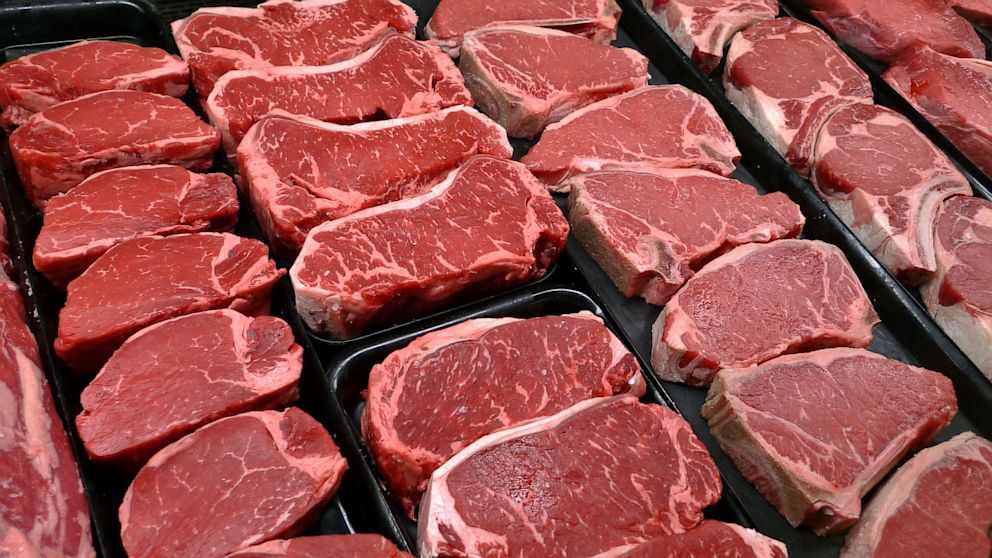Meat Industry Sues USDA, Saying Country-of-Origin Label Leads to Higher Costs
The meat industry sued the USDA, saying a new country-of-origin label is unfair.

July 11, 2013 — -- American meat groups have filed suit against the U.S. Department of Agriculture over its country-of-origin labeling rule, saying it does not address food safety and will lead to higher costs for consumers while bankrupting processing companies.
Eight groups representing the American and Canadian meat industries filed the lawsuit in the U.S. District Court for the District of Columbia to block implementation of a mandatory country-of-origin labeling (COOL) rule. The rule, finalized by the USDA in May 2013, requires origin declaration for three meat production steps: born, raised and slaughtered. It also eliminates the ability to commingle products, which requires segregation of livestock and products in the supply chain.
On Thursday, the American Meat Institute, one of the plaintiffs, responded to claims that labels would help people make safe choices by knowing the origin of their food.
"At AMI food safety is our number one priority, but COOL doesn't offer any food safety information to consumers," the group said on its website. "USDA has made it very clear that COOL is not a food safety program, writing in 2009, 'The COOL program is not a food safety program" and "COOL is a retail labeling program and as such does not provide a basis for addressing food safety'."
The USDA has said the labeling requirement is a "consumer information program."
Meat and poultry companies produce 90 billion pounds of products a year and 99.99 percent of these are consumed safely, the American Meat Institute says. The AMI says it is the nation's oldest and largest trade association representing packers and processors of beef, pork, lamb, veal, turkey, and processed meat products. Its member companies account for more than 90 percent of U.S. output of these products, the group says.
The USDA estimated that the "first-year incremental costs for growers, producers, processors, wholesalers and retailers are $2.6 billion" and the "estimated cost to the United States economy in higher food prices and reduced food production in the tenth year after implementation of the rule is $211.9 million."
In comments to the USDA, the American Meat Institute detailed the tens of thousands of dollars it could cost one plant per week to implement these changes.
The meat groups held a press conference on Tuesday saying that the rule puts companies at the risk of going out of business because many plants built along the borders rely on steady flow of livestock across international borders. However, the rule incentivizes the purchase of livestock raised in one country only due to costs of tracking and segregating animals that have spent any part of their lives outside the country.
The groups have pointed to the USDA's own words in 2009, when it reported there is "little evidence that consumers are likely to increase their purchase of food items bearing the United States origin label as a result of this rulemaking" and that the "[C]urrent evidence does not suggest that United States producers will receive sufficiently higher prices for United States-labeled products to cover the labeling, recordkeeping, and other related costs."
A spokeswoman for the USDA provided a statement to ABC News, saying, "USDA remains confident that these changes will improve the overall operation of the program and also bring the mandatory COOL requirements into compliance with U.S. international trade obligations."



